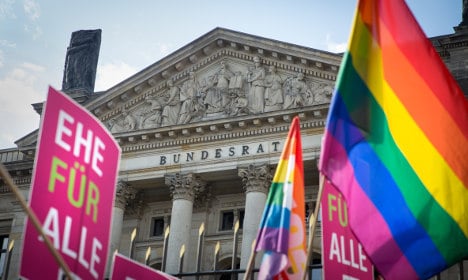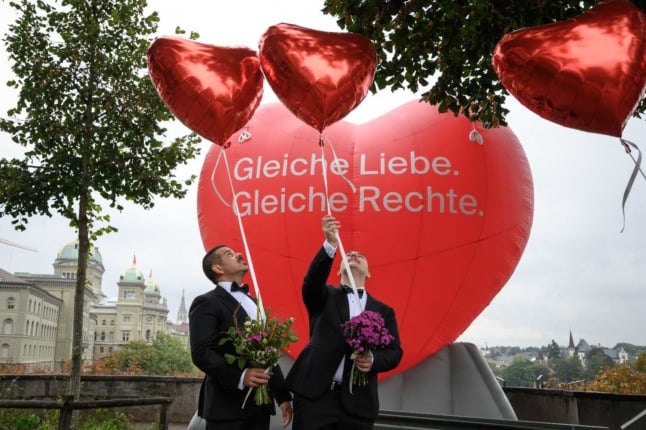The Berlin faction of the CDU announced on Friday that 45 percent of its members voted against gay marriage while 35 percent voted in support in a survey, newspaper Tagesspiegel reported.
The survey was conducted over the past three weeks, asking members whether they would support gay marriage in Germany.
About 40 percent of the CDU's roughly 12,500 members sent in their votes.
While same-sex couples in Germany may enter into legal unions, they do not have the same rights as heterosexual married couples, such as the ability to adopt children together.
The recent passage of same-sex marriage in Ireland and a US Supreme Court decision in favour of gay marriage has put more pressure on Merkel and her conservative Union (CDU and Christian Social Union parties), who have long opposed full equality for same-sex couples.
Sticking to traditional views of marriage is one of the last bastions of conservative values held onto by the Union after the abolition of conscription.
The CDU has continued to block requests for equal rights for same-sex couples by its coalition partner, the Social Democratic Party (SPD) in the Bundestag (German parliament).
Merkel has expressed her opposition to full gay marriage rights time and again,reiterating these views in a recent interview with YouTube star Lefloid.
“For me, personally, marriage is the coexistence between a man and a woman,” she told Lefloid. “But wherever we still see discrimination, we will challenge it further.”
A magazine ad poking fun at the Chancellor’s stance went viral this week as it placed a Merkel lookalike in a lesbian relationship.
Germany's upper house of parliament, the Bundesrat, voted last month to pass a resolution calling for full marriage and adoption rights for gay couples, but the vote did not constitute any form of legislation.
Some had hoped that if the Berlin CDU voted ‘yes’ on Friday, it could help to sway the Chancellor’s position towards further gay rights. The faction said a ‘yes’ vote would have prompted them to put in a request to the party at the national level.
Berlin CDU General Secretary, Kai Wegner, had seemed excited about the vote before the results came in on Friday, saying in the morning that “we are the first state group to do something like this”.
The faction leader opened one of the envelopes containing a member’s vote to show journalists before the results were finalized on Friday, reading the result aloud.
“A male, age 30, from Charlottenburg-Wilmersdorf: I strongly disagree,” Wegner read to the reporters. “Oh, that could be a bad omen.”



 Please whitelist us to continue reading.
Please whitelist us to continue reading.
Member comments